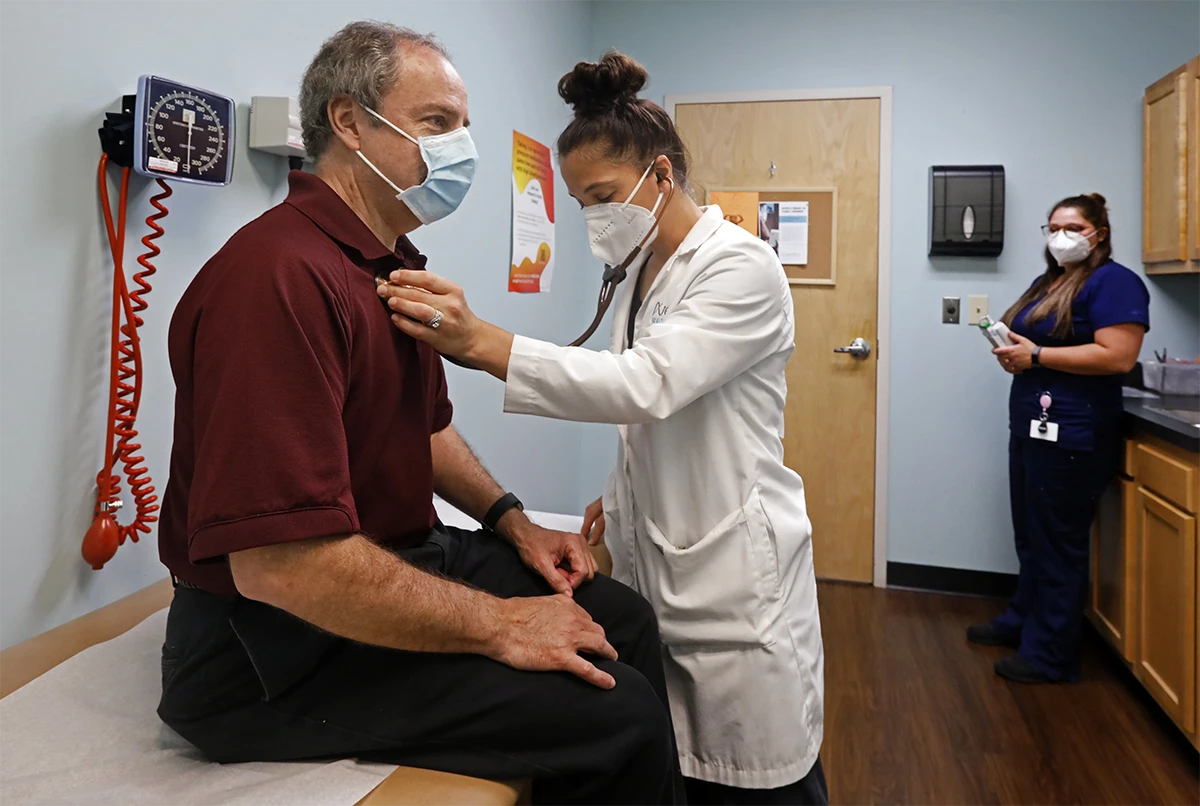
Are you wondering if you can as a Registered Nurse open a clinic?
You have come to the right place.
Opening a clinic can, as a nurse, be a life-changing experience, but it can be a complex and challenging process.
It requires a significant investment of time, money, and energy.
However, it can also be a rewarding experience and totally worth it.
For RNs who are passionate about providing healthcare, opening a clinic can be a great way to make a difference in the lives of their patients.
In this article, I’ll help you understand the complex process of opening your clinic as a nurse.
Yes, a registered nurse (RN) can open a clinic. BUT with the supervision of a doctor.
In the United States, the practice of medicine is regulated by state laws, and these laws typically require that all healthcare providers who diagnose and treat patients be licensed physicians.
RNs are licensed to provide nursing care, not to practice medicine. As a result, you can’t open a clinic.
But don’t worry, you can still open a clinic as an RN, you would need to partner with a doctor who is willing to provide medical supervision.
You, the RN, would be responsible for the day-to-day operations of the clinic, such as scheduling appointments, managing staff, and ordering supplies.
The doctor would be responsible for providing medical care to patients, including diagnosing and treating illnesses, prescribing medications, and ordering tests.
This way you’ll be able to open your clinic.
However, Nurse Practitioners are an exception to this rule.
Subscribe now and get 15% OFF your personalized Tumbler featuring your name/photo.

In some states, nurse practitioners (NPs) are licensed to practice medicine independently, thus opening a clinic without the need to partner with a physician.
If you are an NP, in some states, you’d be able to open your own clinic alone.
NPs are advanced practice registered nurses who have completed additional training and education beyond their RN degree.
Unlike RNs, they are qualified to diagnose and treat patients, and they can prescribe medications.
Assuming you are a Registered Nurse with a Bachelor of Science in Nursing (BSN), to become a Nurse Practitioner you’ll need the following:
Most MSN programs for NPs require that students have a BSN.
However, some programs accept students with an associate’s degree in nursing (ADN).
The time it takes to earn a Master of Science in Nursing (MSN) degree varies depending on the program.
Most MSN programs take between 18 months and 3 years to complete.
Full-time Programs: are typically completed in 18-24 months.
Students in full-time programs take classes on a full-time basis, typically taking 12-15 credit hours per semester.
Part-time Programs: can take 2-4 years to complete.
Students in part-time programs take classes on a part-time basis, typically taking 6-9 credit hours per semester.
There are many different areas of specialization for NPs, including family practice, pediatrics, women’s health, and geriatrics.
You should choose a specialization that interests you and that aligns with your career goals.
MSN programs for NPs require students to complete clinical rotations in their chosen specialization.
These rotations provide you with hands-on experience in providing patient care.
After completing their MSN program, NPs must pass the national board certification exam for their chosen specialization.
This exam is administered by the American Association of Nurse Practitioners (AANP).
Here are some of the steps that an RN would need to take to open a clinic:
Once you have passed the national board certification exam, you must obtain a state license to practice as an NP.
Licensure requirements vary from state to state. So you’ll need to check your state’s requirements.
Yes. A nurse can open her own private practice.
Yes, but you’ll need o partner with a doctor.
Yes. In some states, an NP can open a private practice without the need to partner with a physician.
Now that you have all the necessary credentials, you can open your private practice.
But before opening your clinic, you should follow these steps:
Before you start opening a healthcare clinic, it’s important for you as a registered nurse (RN) to research the regulations that govern clinic operations in your state.
This research will help you understand and comply with the necessary guidelines for a successful clinic.
In addition to the state license, clinics may also need to obtain local licenses and permits.
RNs should contact their local health department to learn more about the requirements in their area.
Opening your own practice can be expensive.
You will need to secure financing to cover the costs of rent, equipment, staffing, and other expenses.
A clinic will need a team of staff members, including nurses, doctors, administrative staff, and janitorial staff.
You will need to hire qualified staff and train them on the clinic’s policies and procedures.
Once the clinic is open, you will need to market it to attract patients.
You can do this by advertising in local newspapers and magazines, creating a website, or participating in community events.
Opening a clinic can be a great way for RNs to make a difference in the lives of their patients.
However, it is important to do your research and plan carefully before taking any steps to open a clinic.
It depends on your specialization and scope of practice, but generally speaking, nurse clinics can offer a range of healthcare services and play a vital role in providing accessible and specialized care to patients.
Here are some common activities and services that nurse clinics can offer:
Yes, as a nurse, you have the opportunity to open your own practice and pursue a fulfilling career path.
Both Registered Nurses (RNs) and Nurse Practitioners (NPs) can establish their own practices, although there are distinct differences in their roles and responsibilities.
RNs, who typically hold a bachelor’s degree in nursing, provide direct patient care, assist in medical procedures, administer medications, and collaborate with other healthcare professionals.
While they can open their own practice, RNs typically operate within established healthcare settings, such as hospitals, clinics, or nursing homes.
Their focus is on delivering high-quality care and supporting patients’ well-being.
On the other hand, NPs are advanced practice registered nurses who have completed additional education and training.
NPs often hold a master’s or doctoral degree in nursing.
They are authorized to diagnose and treat illnesses, prescribe medications, order tests, and provide a range of primary and specialized healthcare services.
Due to their advanced training, NPs have more autonomy in their practice and can open independent clinics or practices.
Important Note
The information provided above is for informational purposes only and should not be construed as legal advice.
It is meant to offer general guidance and a basic understanding of the topic discussed.
If you are considering opening your own practice as a nurse or have specific legal questions, it is crucial to consult with a qualified professional or seek appropriate legal advice tailored to your unique circumstances.
Laws and regulations can vary based on your jurisdiction, so it is essential to obtain accurate and up-to-date information from reliable sources before making any decisions or taking any actions.


We take on average 4 working days to ship.
Standard shipping: 7-21 days.
Fast Shipping: 3-8 days

